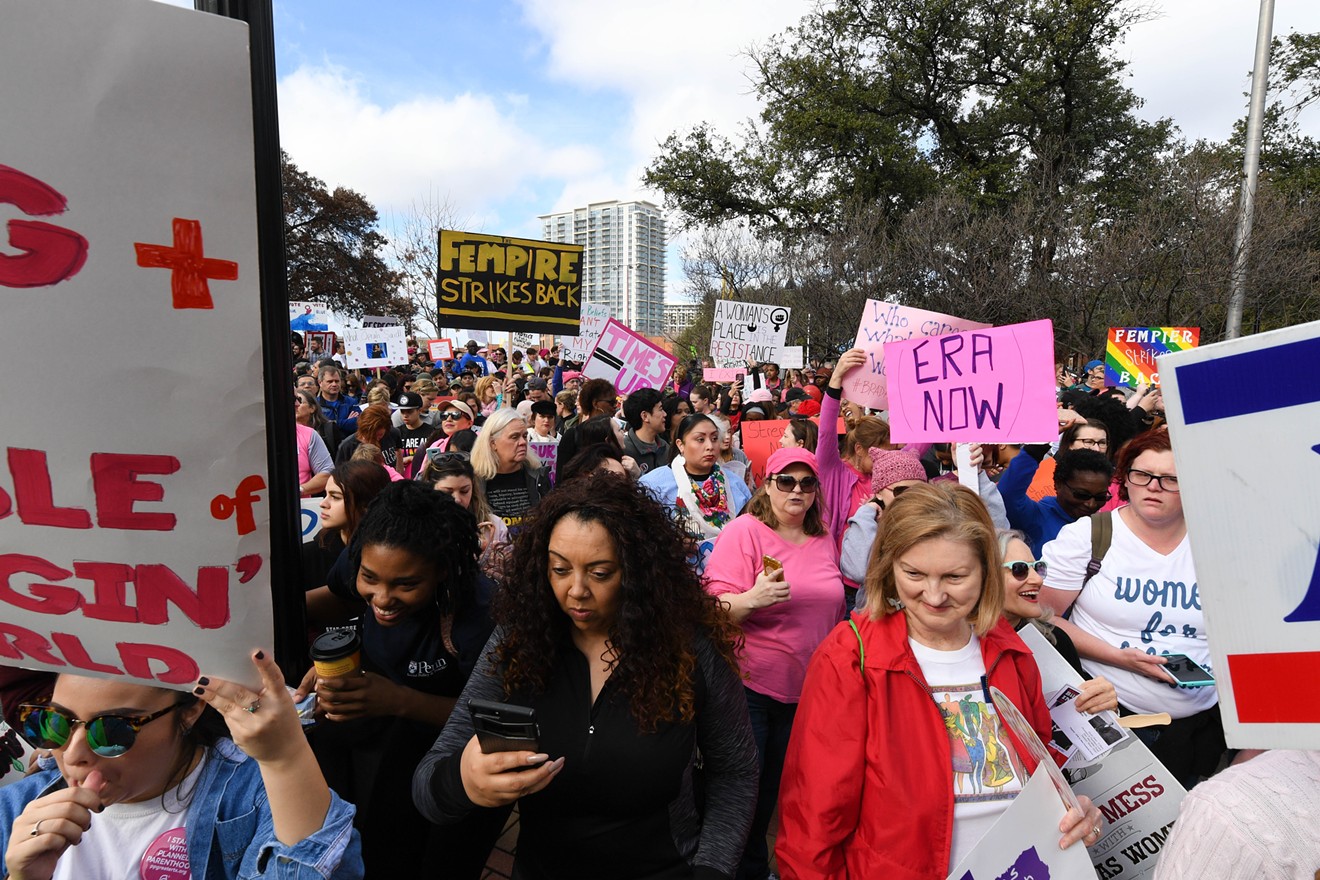If you were old enough to pay attention in the 1970s, you might remember attempts to pass an Equal Rights Amendment. State after state ratified the bill, which the majority of both houses of Congress had passed in 1972, and its passage seemed foreordained — until the rhetoric heated up and it failed to be ratified by the required 38 states within the established deadline. Unwilling to let the fight for equality fail, the film Equal Means Equal seeks to bring attention to attempts to revive the ERA.
Equal Means Equal documents the way women are treated in the United States today. Director Kamala Lopez tells the stories of women whose lives have been impacted by their experiences in various social agencies in the United States. Lopez highlights precedent-setting legal cases ranging from workplace matters to domestic violence, rape and sexual assault. She digs into the impact that the foster care system, health care system and legal system have on the lives of women. The film seeks to illuminate the inadequacy of present laws that are intended to protect women. Because of the disparities these stories reveal, Lopez is advocating for reigniting the fight to pass the Equal Rights Amendment.
Lucy Huang, spokesperson for the National Organization for Women’s Dallas task force, says NOW is a proponent of the Equal Rights Amendment.
“Gender equality still eludes the American woman in the workplace, in society, in government, in health care and even in the control over our own bodies," she says. "The ERA would provide a stronger legal defense against challenges to laws protecting women’s rights. Cementing the ERA in the constitution will ensure our fundamental rights permanently.”
Encouraged by the legislative success of the 19th Amendment, which guaranteed all women the right to vote, the National Women’s Party proposed an amendment to the Constitution that would ensure that women are treated equally to men, particularly in regard to divorce, property and employment. The proposed amendment was submitted to Congress, where it was introduced in every congressional session between 1921 and 1972 without making it to the floor of either the House or the Senate for a vote.
In the 1960s, the women’s rights movement gained momentum, and the voices of women began to be heard in Congress. Black U.S. Rep. Shirley Chisholm gave her famous speech "Equal Rights for Women" on the floor of the House of Representatives. U.S. Rep. Martha Griffiths had been bringing the Equal Rights Amendment to the House Judiciary Committee for 15 years, and it finally got to the floor for a vote in 1971. After the Senate approved it in 1972, the race was on to get it ratified by 38 states within a seven-year deadline.
Thirty states ratified the ERA, which at first was popular and supported by members of both political parties, by 1973. But strident voices began to stoke opposition. Conservative activist Phyllis Schlafly campaigned against the amendment, invoking the need to preserve traditional gender roles and inciting the fear that women would be drafted into the military. Ratification by states slowed, and even with an extension of the deadline, it fell short by three states. The Equal Rights Amendment never really died and has been introduced in every Congress since 1983.
"We applaud the filmmakers in bringing the need to push for the ERA to the forefront again," Huang says. "It’s time we make the ERA a reality."
With the rise of the #MeToo movement and voices in many industries speaking up for the rights of women, perhaps now is the time.
See a screening of Equal Means Equal, followed by a panel discussion, at 7 p.m. Thursday on the Southern Methodist University campus.
[
{
"name": "Air - MediumRectangle - Inline Content - Mobile Display Size",
"component": "18855504",
"insertPoint": "2",
"requiredCountToDisplay": "2"
},{
"name": "Editor Picks",
"component": "17105533",
"insertPoint": "4",
"requiredCountToDisplay": "1"
},{
"name": "Inline Links",
"component": "18349797",
"insertPoint": "8th",
"startingPoint": 8,
"requiredCountToDisplay": "7",
"maxInsertions": 25
},{
"name": "Air - MediumRectangle - Combo - Inline Content",
"component": "17105532",
"insertPoint": "8th",
"startingPoint": 8,
"requiredCountToDisplay": "7",
"maxInsertions": 25
},{
"name": "Inline Links",
"component": "18349797",
"insertPoint": "8th",
"startingPoint": 12,
"requiredCountToDisplay": "11",
"maxInsertions": 25
},{
"name": "Air - Leaderboard Tower - Combo - Inline Content",
"component": "17105535",
"insertPoint": "8th",
"startingPoint": 12,
"requiredCountToDisplay": "11",
"maxInsertions": 25
}
]











